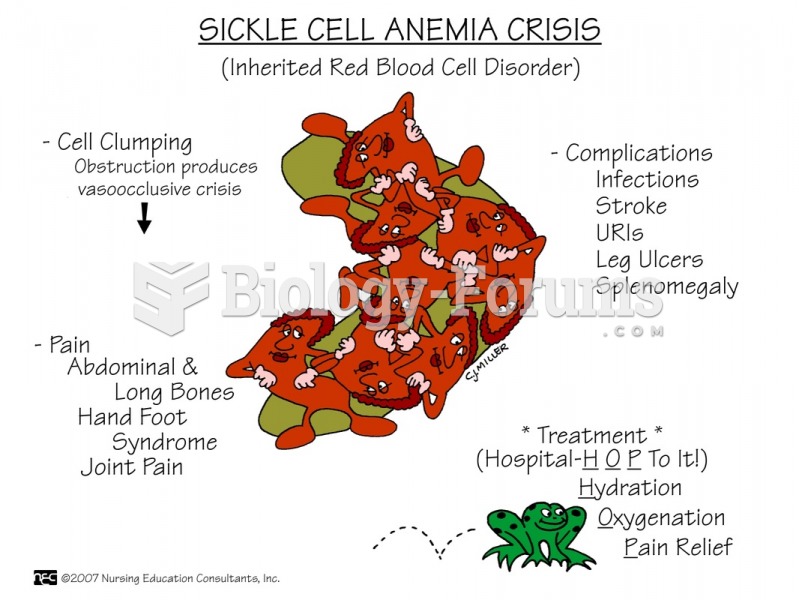This topic contains a solution. Click here to go to the answer
|
|
|
Did you know?
Signs of depression include feeling sad most of the time for 2 weeks or longer; loss of interest in things normally enjoyed; lack of energy; sleep and appetite disturbances; weight changes; feelings of hopelessness, helplessness, or worthlessness; an inability to make decisions; and thoughts of death and suicide.
Did you know?
On average, the stomach produces 2 L of hydrochloric acid per day.
Did you know?
There are approximately 3 million unintended pregnancies in the United States each year.
Did you know?
Autoimmune diseases occur when the immune system destroys its own healthy tissues. When this occurs, white blood cells cannot distinguish between pathogens and normal cells.
Did you know?
Women are 50% to 75% more likely than men to experience an adverse drug reaction.







